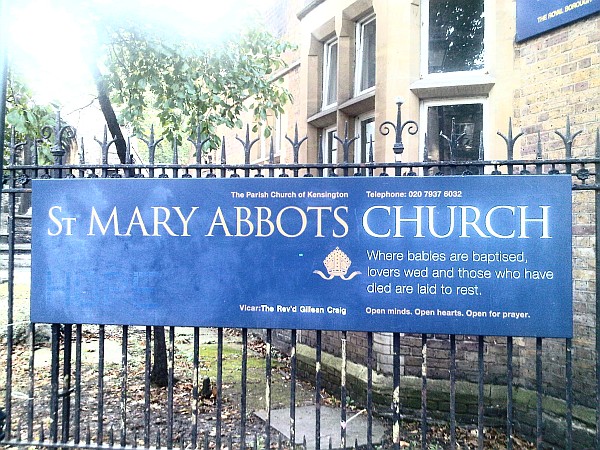 Difficult times can upset previously solid beliefs. A fellow loudly affirmed trust in Jesus. But his situation soured, and he sunk. He asked of Jesus, “Are you the one or should we expect someone else?” I’m talking about John the Baptist in Matthew chapter 11. There's a hint of a secret message to John in what Jesus said in reply, and in what Jesus did not say.
Jesus could have affirmed, “John, just as you yourself said, I am the Lamb of God who takes away the sin of the world. I was born after you, but I came before you. I am the promised redeemer.” No, Jesus did not in this case issue theological claims as he did at other times. Instead, Jesus reassured John by listing six actions, six signs, six evidences that John’s agents could verify and that identified God at work. I don’t object to claims, to creeds and confessions. They distill decades of careful thought and passionate debate to arrive at compact summaries about God, Jesus, and the Holy Spirit. True, they tend to create as many questions as they answer. So do sermons, books, and the words you are reading. There was a crowd convinced of the truth of such statements that still had to implore, “What then shall we do?” “We believe in God,” begins the Apostles' Creed. How does this apply? Does this mean that every day we aim to respect and help people, who are made in God’s image? Or does this mean we behead those who don't believe in God? Or does believing in God, like believing Mars has two moons, make no earthly difference in our behavior? Consequently, many Christian groups now post not only “what we believe” but also “what we value,” “mission statements,” and “vision statements.” Here are some engaging church mission statements. Notice how they identify actions.  Vision statements are about action, and also identify measurable goals:
 I have benefited from lofty visions and definite destinations. But I also need a goal to guide my next step. School teachers are aware of something called the zone of proximal development. This lies directly on the path to a high general goal like "master ninth grade algebra". Proximal development heads in that direction but stands with one foot within the student's comfort zone, and one foot beyond. It aims for maximum learning, for stretching the student beyond what is easy, but not so much the student gives up and comes to hate the subject, the process, and herself. I have super high hopes when God is involved. "I can do all things through Christ who strengthens me." At the end of the day, I would like to have accomplished something that was clearly beyond my ability, perhaps beyond human ability. That would show that God was in it! But I must beware of treating God as a subcontractor. "Keep back Your servant also from presumptuous sins." I am not made right with God by what I do; but to other people, what I do speaks louder than what I think. Or as someone said, people don't care how much you know until they know how much you care.  As far as the record shows, John the Hippie (better known as John the Baptist) initially stood up for Jesus more forcefully than all the bumbling fishermen and tax collectors who stumbled along behind Jesus. John was out front, yelling, “Snakes!” “Change your hearts and lives because the kingdom of heaven is near!” John said, “I am the voice of one calling out in the desert: ‘Make the road straight for the Lord.’” John said of Jesus, “This man is the Son of God.” So how did John come to ask falteringly, “Are you the one?”  Two years have passed. John is rotting in Herod's prison awaiting death. John faces the same kind of forceful, persistent opposition that causes Peter and other godly people to about give up. What has become of his life’s work? Perhaps, despite his extraordinary insights into who Jesus was, he like Peter and the others harbors expectations that Jesus would lead a political uprising, implementing before their eyes all of the promises of the prophets. Those promises included Isaiah 61: “The Lord God has put his Spirit in me, because the Lord has appointed me to tell the good news to the poor. He has sent me to comfort those whose hearts are broken, to tell the captives they are free, and to tell the prisoners they are released.” Jesus quotes the unusual phrase, “good news to the poor.” The poor don't often get good news. However, Jesus' list stops before “to tell the captives they are free, and to tell the prisoners they are released.” This could have been Jesus' way of telling John: I am fulfilling Isaiah’s visions. I am the promised one. In the big picture, God's plan is going forward. But not everything you want will happen when you want it. In visiting people seized by sickness or other calamities, just coming can encourage. Sometimes a comforter can paint a bigger perspective involving people and events outside the sufferer's little space, perhaps leading them up and out from their dungeon of despair. Sometimes. Elijah, Peter, and Paul had such dark nights of the soul. These and others were not comforted by "it's all for the best" or "don't worry, be happy," They were however helped by God's promise, "my grace is sufficient for you." The church has progressed through creeds, confessions, mission statements, and purpose-driven manifestos. Most of these are fine as far as they go. Visions should be set high. But it's time to move on to include disclaimers, to humility. My personal mission statement would go something like this:
Hey people, I trust Jesus. Jesus loves me, this I know, for the Bible tells me so. Little ones to him belong; they are weak, but He is strong. I aim to do what Jesus said to do, starting with loving God completely and loving people as I love myself, with my passion, my sweat, my cogitation, and my stuff. I want to equip people to love and do the same or even better. But I’m a jerk, so I may fail. When I do succeed in those goals, pay attention, because that will be Jesus.
0 Comments
|
Our Writers:At The Surge we love doing things together... that includes writing a blog! Here are a few of our main contributing authors: Greg JohnsonJesus++ Dwaine DarrahOur fearless leader, Dwaine is the lead pastor at The Surge. His experience in counter terrorism with the CIA prepared him for ministry and he likes dogs and babies even more than E does. EE (short for Eric Reiss) is the Wingman at The Surge and likes dogs, music, Mexican food, his wife Karen and his little girl Evangeline... not necessarily in that order. Archives
June 2024
Categories
All
|
|
|
The Surge Community Church
Meeting Sunday Mornings at The State Theatre in Falls Church, 11:10am! Rebroadcast Available Sunday Evenings with SurgeOnDemand, 7:00pm! |


 RSS Feed
RSS Feed
